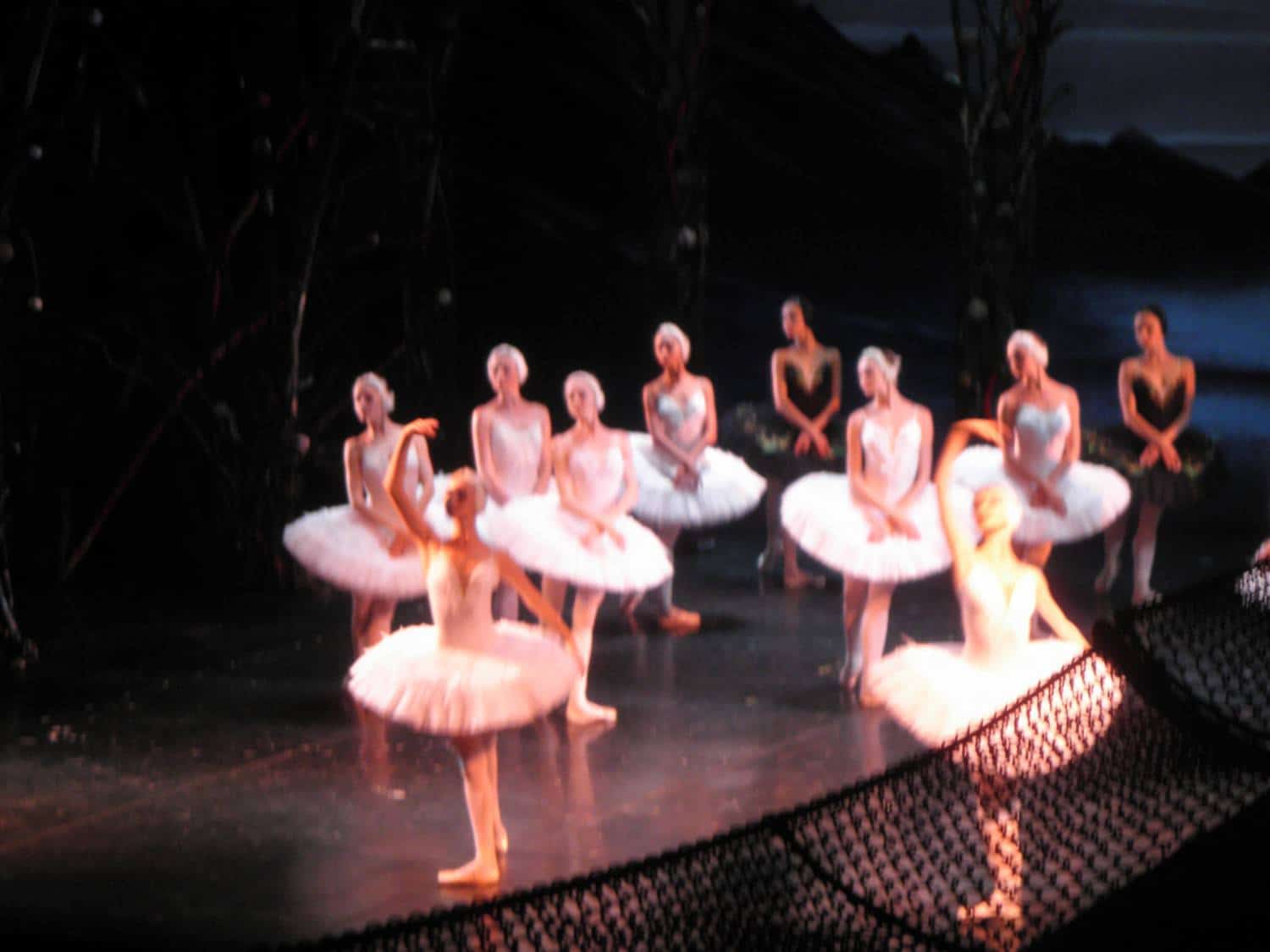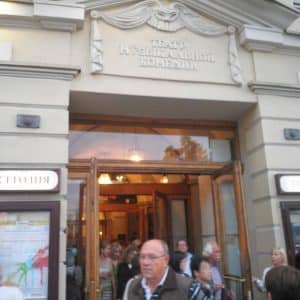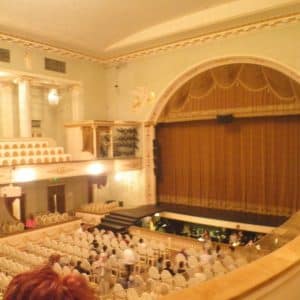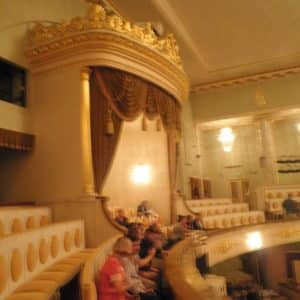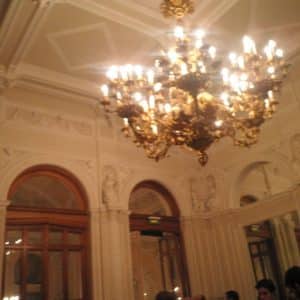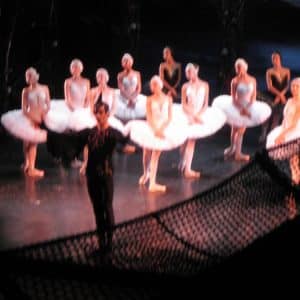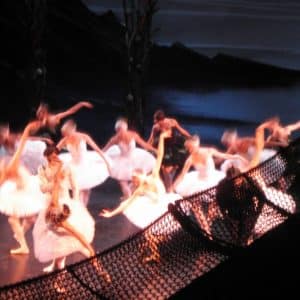Ballet stands as one of the most acclaimed forms of Russian high culture, and perhaps no other show best captures this magnificence as Peter Tchaikovsky’s Swan Lake. So when SRAS (the School of Russian and Asian Studies) provided the opportunity to attend a performance at the Musical Comedy Theater, my fellow students and I felt extremely fortunate to experience this classically Russian event.
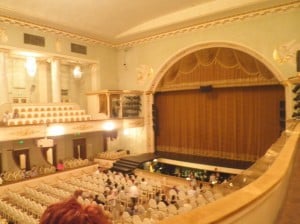
Admittedly, I had never been to a ballet before, and my prior knowledge of Swan Lake stemmed from the movies Black Swan and The Swan Princess. While I did not understand everything that was occurring during the performance, I did my best to infer what was happening. The following synopsis is based on what I observed at the ballet, supplemented with online resources that clarified any remaining questions…
In Act I, Prince Siegfried exuberantly celebrates his birthday with dancing, music, and gifts- in particular, he relishes over a new crossbow. However, his mother announces that since Siegfried has reached marriageable age, she expects him to find a bride. Overwhelmed with this sudden, crushing wave of responsibilities, he goes off hunting in the woods to clear his mind.
In Act II, Siegfried happens upon a beautiful swan gliding on a lake. As night approaches, she magically transforms into Odette, the White Swan Queen. Odette informs Siegfried that the wicked sorcerer Rothbart enchanted her and a fellow group of maidens, turning them into swans. She then states that the only way to break the curse is if a pure hearted man pledges her love to her. Siegfried, having fallen in love at first sight, attempts to declare his love for Odette. However, Rothbart appears and separates him from Odette and the Swan Maidens, leaving Siegfried all alone at the lake.
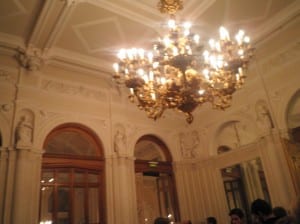
In Act III, Siegfried attends a ball, organized by his mother as a means to meet prospective brides. Although he dances with the princesses, he can only think about Odette, his one true love. Rothbart arrives with his daughter Odile, the “Black Swan”; due to a spell, Odile looks identical to Odette. Siegfried, having fallen for the masquerade, pledges his love for Odile. Meanwhile, the real Odette, who had been watching from a window, flies off in despair. Rothbart and Odile reveal their devious plot, and Siegfried, horrified by his mistake, takes off to find Odette.
Traditionally, Act IV ends in tragedy, with both Odette and Siegfried dying and ascending to heaven. However, the version we saw deviated from the original; Odette flies to the lake in misery, and appears to perish as Siegfried arrives. Rothbart follows them, and in an ensuring fight Siegfried violently rips off his wing, leading to the destruction of his powers and his death. As Rothbart’s spell is now broken, Odette comes back to life, and Siegfried and her live happily ever after. This alternate ending was developed under the Soviets and most productions, no matter where they are held (in Russia, Europe, or America) generally pick and chose which ending to use.
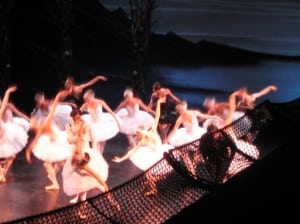
During the performance we viewed, a variety of elements converged together that made the ballet a truly magical experience. The interior of the Musical Comedy Theater resembles a palace, with chandeliers, a wide balcony, and a plethora of classical statues. As for the show itself, once the lights dimmed, and the orchestra began playing the overture, the audience became transported into a fairy tale. The grand and meticulously designed sets swiftly shapeshifted from a medival castle to a magical lake. The stunning costumes emphasized the characters’ personality traits. For example, the simple, white costumes of Odette and Siegfried symbolized their purity; the black flamboyancy of Rothbart and Odile revealed their dastardly cunningness, and the colorful, whimsical design of the Jester displayed his joie de vivre. Finally, the fantastic choreography brought out the soul of the ballet. The ballet does not include dialog, and we did not receive any playbills; nonetheless, the language of pirouettes, fouettes, grand jetes, and other such movements absorbed us into the action of the performance.
I definitely consider Swan Lake as one (of many) highlights of my St. Petersburg experience. I also consider it a metaphor for my broader journey in learning the Russian language. In both experiences, although I may not understand everything that is occurring, I can still enjoy the experience by capitalizing on what I do know, and making my best guesses as to what is unclear. By combining these abilities, and using tools for further explanation later on (i.e. About.com for Swan Lake, a dictionary for Russian) I will eventually gain full understanding of these wonderful, though mysterious, phenomena.
“Swan Lake” at the Musical Comedy Theater
“Лебединое озеро” в театре музыкальной комедии
Ул. итальянская, 13
http://spbmuzcomedy.com


